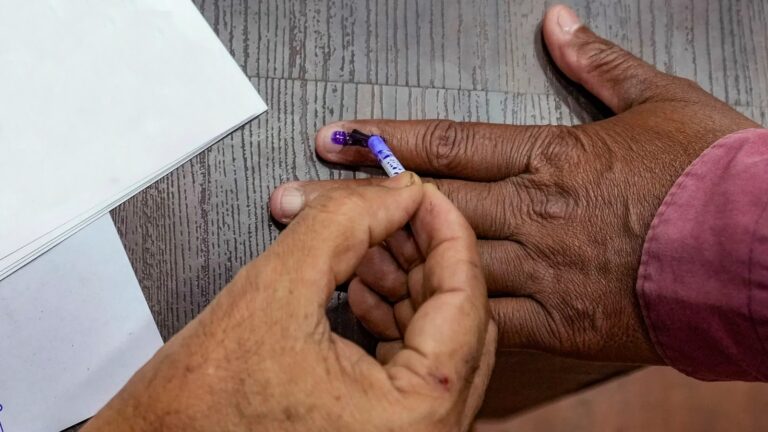The outcome of the 2024 general election, besides being a vote on basic everyday issues like naukri, mehangai, roti, kapda aur makhan and the constitutionally enshrined rights of the underprivileged, also carries an underlying message that India cannot be ruled by a centralized, autocratic, monolithic regime. Article 1 of the Indian Constitution states that “India, or Bharat, shall be a Union of States.” Without explicitly using the word “federal,” the founders of modern India emphasized states through several articles, especially Article 7. June 4 solidified this underlying ideal, and the people told us that the Bharatiya Janata Party’s “One Nation, One This, One Nation, One That” narrative must be abandoned. It was therefore not surprising that in the first session after the general election, the opposition parties made a comeback in Parliament and the BJP weakened.
The 2024 general elections marked a shift away from PM Modi’s centralised approach to governance, with regional parties gaining strength in various states. It is significant that India officially has only six national political parties. However, the opposition’s strength grew due to parties such as the AITC, DMK and SP achieving success at the state level. The NDA also secured seats to form the government from parties such as the JD(U) and TDP, none of which are included in the six national parties.
The bottom line is that if the Indian Union wants to remain firm and inch towards forming a central government, it must protect state governments such as Karnataka and Telangana, which account for around 100 seats. Similarly, if the NDA coalition wants a stable government, it must serve the interests of regional partner states such as Andhra Pradesh and Bihar.
PM Modi’s “developed India” policy must bow to India being a “union of states” and the Indian subcontinent must vigorously defend the constitutionally-established powers of states in our quasi-federal system.
More importantly, there can be no independent India without the growth and contribution of large opposition-ruled states such as West Bengal, Tamil Nadu and Karnataka. These three states contribute 5.6%, 8.8% and 8.38% respectively to the national economy and 16%, 10.5% and 9.4% to the state GDP respectively. The Prime Minister may have spoken of “competitive cooperative federalism” in his speech in the Lok Sabha on July 2, but his actions have only weakened the welfare and legislative agenda of the states. Centralisation of power and differential treatment have been at the core of PM Modi’s model of governance.

The state of West Bengal and its Chief Minister Mamata Banerjee have been under attack ever since the BJP’s defeat in the 2021 state assembly elections. There are several clear examples that show the extreme erosion of the state’s power, finances and image by the BJP. It started with the central forces providing security to all 77 BJP state assembly members after the 2021 state assembly elections on the pretext of post-poll violence. This is the polar opposite of the unchecked violence that the BJP government tolerated in Tripura. The Governors of West Bengal have not only crossed the line of decency in communicating with the Chief Minister. They have repeatedly crossed the line of constitutional law by withholding assent to important bills and ignoring the will of the state on important issues. For instance, the West Bengal government had to approach the court over the issue of the CBI investigating cases in the state, as mandated by Section 6 of the Delhi Special Police Establishment Act. The NDA government has not only introduced three criminal laws making sweeping changes to the criminal justice system without proper consultation or debate, but also held a meeting on the issue in Kolkata in June without the involvement of the state government, despite the fact that law and order is a state matter and its implementation is the sole responsibility of the CM, who is also the home minister.
The central government has refused to pay around 1.16 lakh crores owed to the state of West Bengal as debts of centrally sponsored schemes. All social schemes like MGNREGS, National Health Mission, PMSY, PMGSY etc. have huge outstanding amounts which have been withheld by the Government of India. The state has responded to numerous queries from the central government but to no avail. To make matters worse, the BJP-ruled state received compensation despite its irregularities. The West Bengal government has not only paid the debts owed by the central government to job card holders but has also launched Karmashree Prakalpa, a state scheme to ensure them employment, a right guaranteed by central law.

“One Nation One Election”, “One Nation One Exam”, amendments to the Essential Commodities Act that have curtailed the powers of states, and stripping of compensation to states under the flawed GST regime are all clear examples of how federalism is under attack. The modus operandi is clear – weakening states where the BJP has repeatedly lost. The results of the July 13 by-elections prove that opposition electoral victories in states pose a threat to the BJP. Over the next five years, the opposition will need to focus on aggressively defending the country’s federal structure, and state parties, which are the backbone of the current NDA government, will also need to act swiftly to protect their interests.
The author is a member of the Indian Senate and a Member of the All India Trinamool Congress Party.
© Indian Express Ltd.
First uploaded: July 16, 2024 7:54 AM

